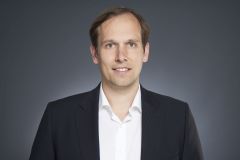Kolloquium WiSe 2019/20

Speaker
Dr. Raphael Koning
Advanced Bionics
When: Mo, 20.01.2020, at 17:00 c.t.
Where: Room B-201
Topic
Signal processing in cochlear implants – From surgery to sound perception
Language: English or German
Abstract
Signal processing in cochlear implants – From surgery to sound perception
Hearing can be restored in deaf people by direct electrical stimulation of the auditory nerve fibers. In cochlear implants, different signal processing techniques are used at various stages of a CI user’s hearing journey. Auditory nerve responses such as the cochlear microphonic are recorded during surgery, and electrically compound action potentials during and after surgery help with fitting. Each requires different techniques in terms of noise reduction and artifact rejection. For electrical hearing, a sound coding strategy transforms the incoming microphone signals to a series of electrical pulses to drive the intra-cochlear electrodes hence representing the frequency and energy of the audio signal. Additionally, techniques such as directional microphones exploit the spatial distribution of sound sources while other speech enhancement schemes remove as much of the interfering background noise as possible without introducing excessive speech distortion. Both approaches substantially reduce background noise, leading to improved speech perception.
Bio
Dr.-Ing. Raphael Koning is Manager of Hearing Performance Research of Advanced Bionics based at the European Research Center in Hannover, Germany. He received his Master degree in Electrical Engineering from the Ruhr-University Bochum In 2009 and his Master of Science in Economics from the Fern-Universität in Hagen in 2013. In 2014, he finished his PhD on speech enhancement in cochlear implants at the University of Leuven, Belgium. His general research interests are digital speech signal processing, artificial intelligence and biomedical signal processing, in particular for the application in auditory prostheses.
Contact
Prof. Dr.-Ing. Timo Gerkmann
Video
Vortrag bei Lecture2Go
(Passwort erhältlich bei Referent, Gastgeber oder Organisationskomitee)
